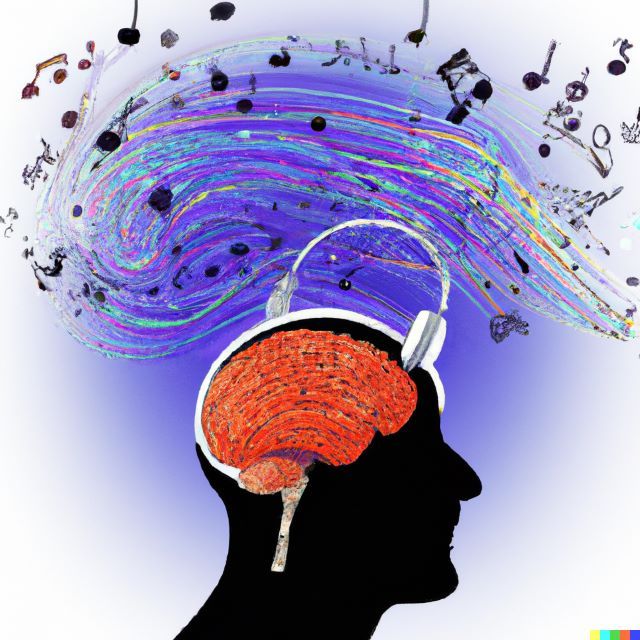Tune Up Your Brain: The Musical Journey from Listening to Playing
Discover the ways in which musical practice alters the brain's structure and function. Find out how the brain works, what happens when you specialize in an instrument, and how your feelings change when you listen to music.

Gabriela Pérez Acosta, a professor and researcher at UNAM's Faculty of Music (FaM), says that just paying attention to music involves cognitive processes that take place in the brain's temporal processing areas, parietal areas, cerebellum, and basal ganglia.
Complexity increases when music practice is undertaken; that is, playing an instrument for long periods of time generates changes at a neuroanatomical and neurophysiological level, even when it is not performed professionally. The important thing is that the practice is constant and has been carried out for several years.
This requires fine movement control since both hands are usually used in different ways. Decoding information, that is, reading a score and turning it into a model for motor control, is a type of brain activity.
The professor of the Postgraduate Program in Cognitive Sciences at the Autonomous University of the State of Morelos also indicated that the structure that connects the two cerebral hemispheres, called the corpus callosum, increases its density in these people.
"There is a greater number of nerve fibers that connect one hemisphere with the other." "We must remember that for the complete processing of music, the participation of both hemispheres is involved, and the structure that connects them is increased in musicians of many years of age," she pointed out.
With a degree in piano from the FaM and a diploma in performance from L'École Normale de Musique de Paris, Perez Acosta explained in an interview that the brain of a violinist is not the same as that of a pianist because there are specific brain areas of control.
"It is very interesting what certain magnetic resonance images reveal that denote differences according to the specialization of the instrument." "There has been strong evidence that musical practice does generate changes at a structural level in the brain, and the earlier it starts, the more long-term impact will be noticed."
Even when someone begins to study an instrument at an older age but does it constantly for a long time, they can achieve changes at that level. As a result, some instrument-playing therapies have been used to try to prevent certain cognitive declines in older adults.

The Impact of Volume and Emotional Response on Music Listening: How the Brain Participates in the Experience
There are various ways to listen to music; the type of listening determines how our brain participates in the experience."It is different to put it in the background, where you think you are listening, but in reality it is as an accompaniment to perform another activity that demands more attention."
Memory activations happen when we start to have an emotional response to music. For example, we start to evaluate (unconsciously) and have memories like, "This song reminds me of a certain event; it makes me feel like I did before." We are talking about how attention and memory processes are turned on.
There are also people who need a certain level of volume in order to have a more marked emotional response to music.
The volume by itself does not have a particular emotional effect; it depends on how each individual is used to listening. It is a social convention. When I am in a meeting, I feel good and energetic, and, in addition, the music is loud, so I make that association. If the volume is lowered, I no longer have that same intensity of experience, but it is due to the environment because, in reality, the volume does not have a specific effect.
It is a matter of perception, habit, and experience; we must be aware that listening at high volumes does affect the auditory system. This leads to a vicious circle in which hearing becomes less sensitive and more and more volume is needed to feel the same way again.




